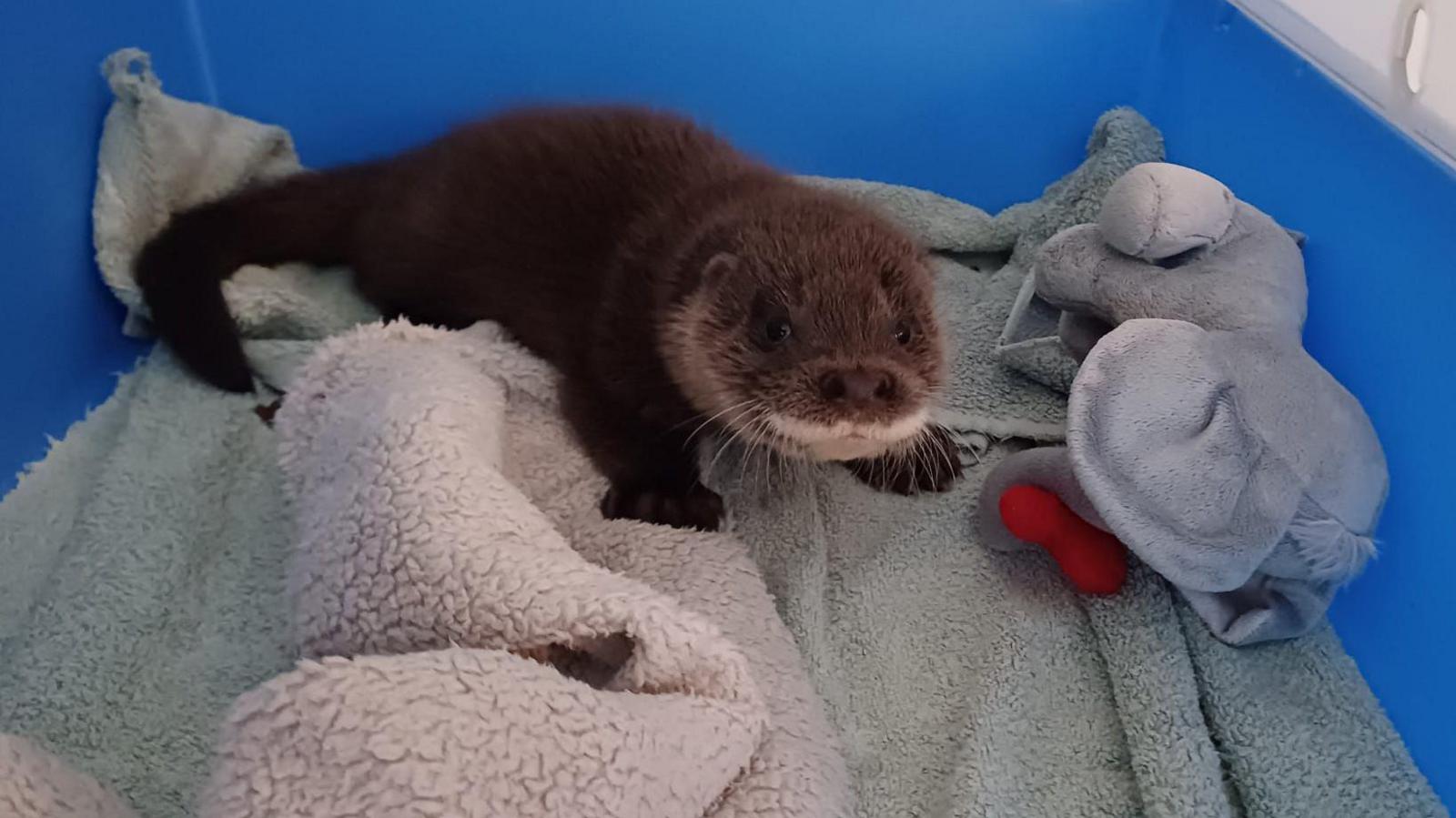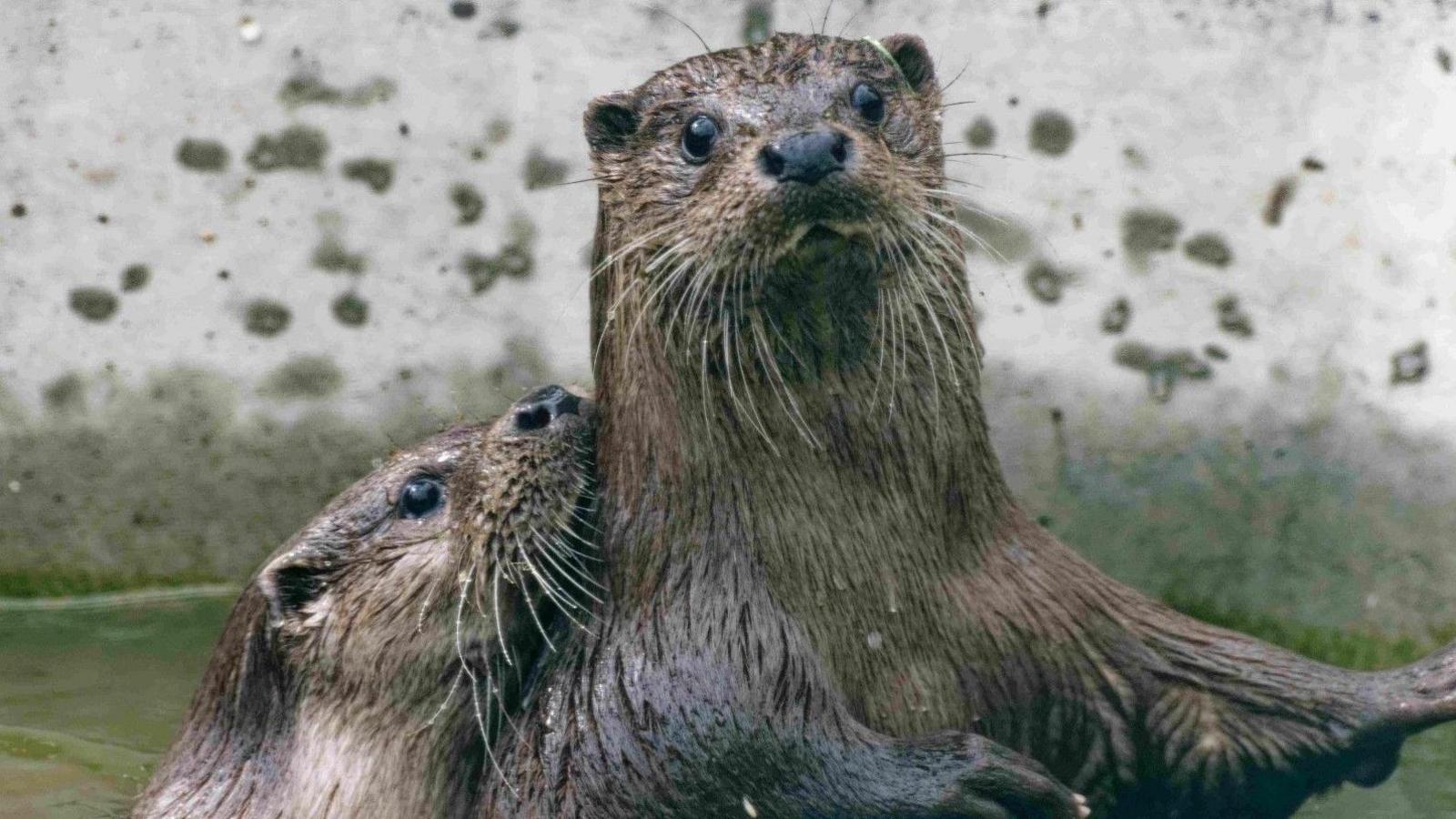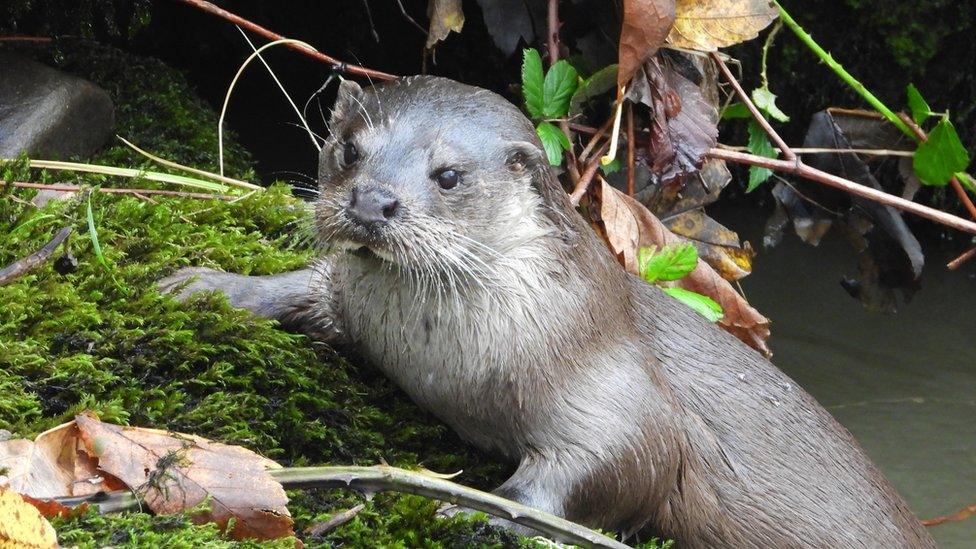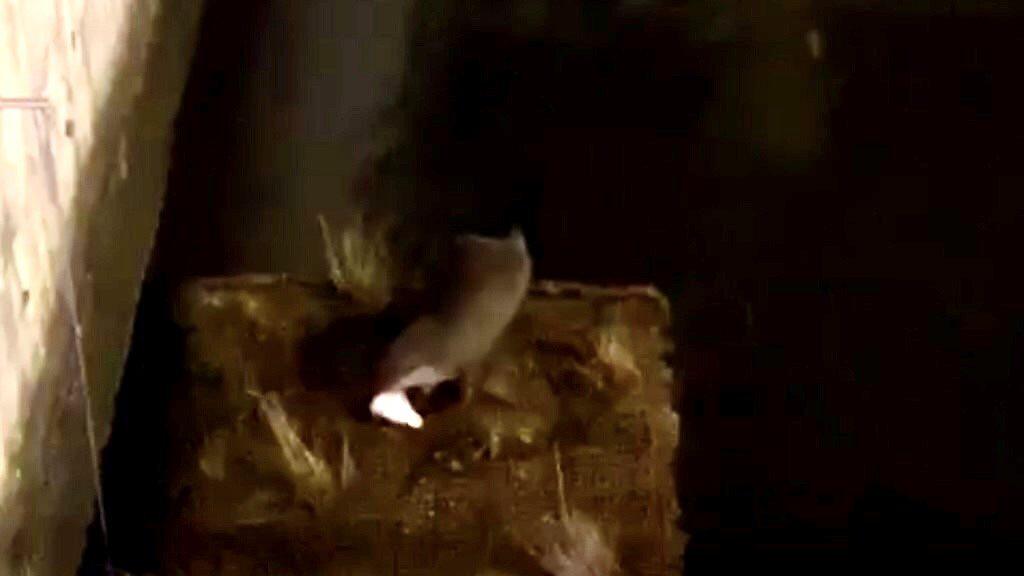Traffic increase a threat to otters, charity warns

Menai was rescued by volunteers and will only be released into the wild when he is strong enough to survive alone
- Published
An increase in traffic is a major threat to the restored otter population of Anglesey, a charity has warned.
The UK Wild Otter Trust has nursed an eight-week-old wild otter cub back to health after its mother was run over, leaving him to fend for himself for several days.
Otters had been largely absent from the island for much of the 20th Century, but have been making a comeback over the past 40 years.
But rescue teams warned an increase in traffic - as well as flooding, land development and pollution - were putting them at risk.
Eurasian otter cub Menai, named after the bridge to Anglesey - weighed less than 1kg (2.2lb) when he was spotted by a member of the public and rescued by volunteers.
Rangers found the cub’s mum dead about a week after rescuing him - Menai's sister was also found but she could not be saved.
Dave Webb, founder of the Devon-based UK Wild Otter Trust, said youngsters "absolutely rely" on their mothers' care and the fact Menai survived was "miraculous".
He said the team hoped to release him back into the wild in about a year "when he’s old enough to survive on his own".
Otter decline 'wake-up call' over river pollution
- Published31 January 2022
Watch: Otter-ly unusual sight in a town centre. Video, 00:00:30
- Published8 April 2024
The charity launched its Slow Down for Otters campaign last year to address an increasing number of deaths and is having its busiest year since it launched in 1998.
"We’re seeing so many cubs orphaned due to traffic," said Mr Webb.
"Last year, 32 cubs came through our doors in total. This year so far we’ve had 31, with another four on the way to the centre this week.
"We want to raise awareness with the public that there are otters around and to be aware of the habitat you’re driving through, particularly along or across rivers."
He urged drivers to be mindful of other wildlife too, including deer, rabbits, badgers and foxes.

The charity says it's having its busiest year yet, with more than 30 otters seen this year
Research by Cardiff University, published in 2022, found fewer signs of otters on almost all waterways in Wales and across the UK.
Signs of otters - such as footprints, spraint (droppings) and holts (hiding places) - were spotted at just over 70% of the sites visited across Wales, down 22% since 2010.
Eleanor Kean, an independent ecologist who led the survey work, said "a little bit of complacency" had developed in recent years when it came to preserving the otter population.
- Published5 June 2023

- Published17 January 2024
